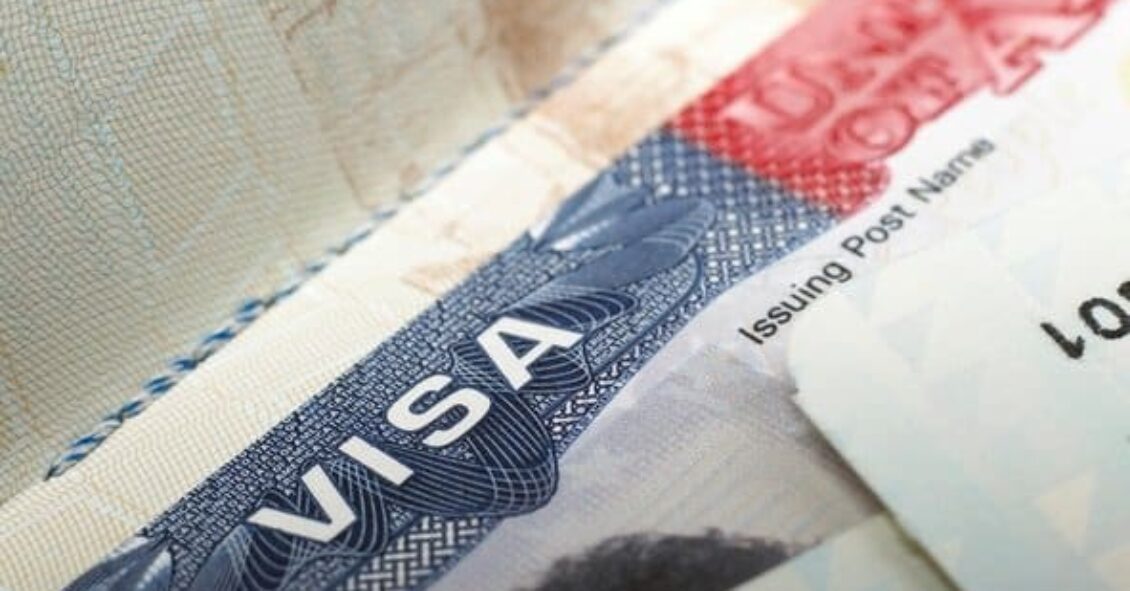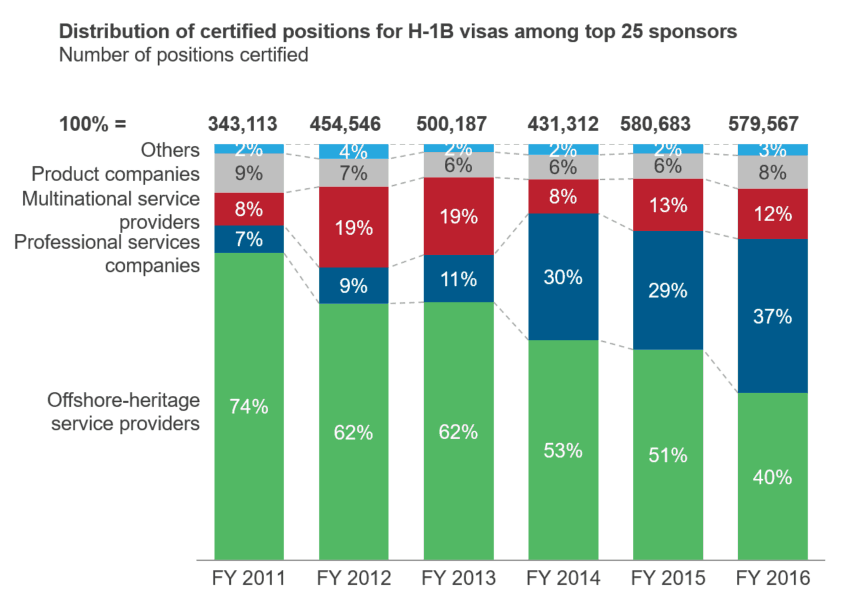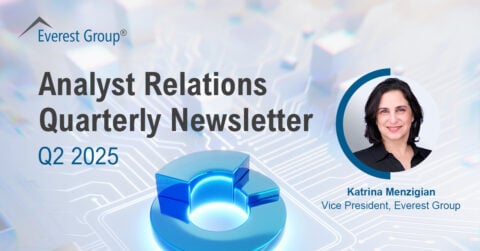
Recently, an official from the Trump administration accused Indian IT providers of abusing the H-1B visa process by “flooding” the lottery system with applications, giving them an unfair lottery draw advantage. The statement again spotlighted the issue of importing foreign IT services workers to the U.S., thereby limiting job opportunities for domestic candidates. It also underscored the huge extent of outsourcing being done by U.S. corporations, especially to offshore-heritage providers. What it didn’t discuss was other types of companies’ usage of the H-1B program to import skilled talent into the country.
Everest Group conducted a quick analysis on the Labor Condition Applications (LCAs) employers filed to obtain H-1B visas in the last few years. We classified the employers into several categories:
- Offshore-heritage service providers, such as Cognizant, Infosys, and TCS
- Multinational service providers, such as Accenture, Capgemini, and IBM
- Professional services firms, such as Deloitte, EY, and PwC
- Product companies, such as Apple, Cisco, and Oracle
- All other companies
Our findings?
- While the total number of certified positions increased at a CAGR of 11 percent between FY 2011 and FY 2016, offshore-heritage providers’ share has dropped significantly, from 74 percent in FY 2011 to 40 percent in FY 2016
- The biggest share grabbers are professional services firms, which are increasingly competing with traditional IT services players across deals. Their share in H1-B visas has increased from 7 percent in FY 2011 to 37 percent in FY 2016. On an absolute basis, that’s an almost ten-fold increase
- The top 25 employers contribute ~50 percent to the total positions certified, which implies that offshore-heritage providers have only a 20 percent share of the total positions certified for H-1B visas by the Department of Labor between FY 2011 and FY 2016.
(For the uninitiated, a certified LCA (ETA Form 9035), is a prerequisite to H-1B approval. The LCA must be certified by the Department of Labor (DOL) before the H-1B petition (Form I-129) is submitted to USCIS. The LCA contains basic wage and location information about the proposed H1B employment. Please note that a certified LCA does not guarantee H-1B visa approval, however, certified position trends are good indicators of H-1B visa usage. Also, note that the data below includes positions certified for new H-1B visa applications as well as renewal and transfer of H-1B visa.)

One of the Trump administration’s suggested reforms is to increase the minimum wage for H-1B visas from US$60,000 to US$130,000. But as this minimum wage recommendation is applicable to companies that are “H-1B dependent” – and most offshore-heritage providers fall into this category – the required increase in minimum wage, whatever it ultimately is, will likely affect offshore-heritage providers more than any other type of organization.
At the same time professional services firms have quietly increased their leverage of the visa-led model, offshore-heritage providers have been the unfortunate recipients of far greater scrutiny and negative limelight. In order to successfully compete, offshore-heritage providers have no choice other than to prepare now for the impact of visa policy changes. As the old saying goes, “better safe than sorry.”










